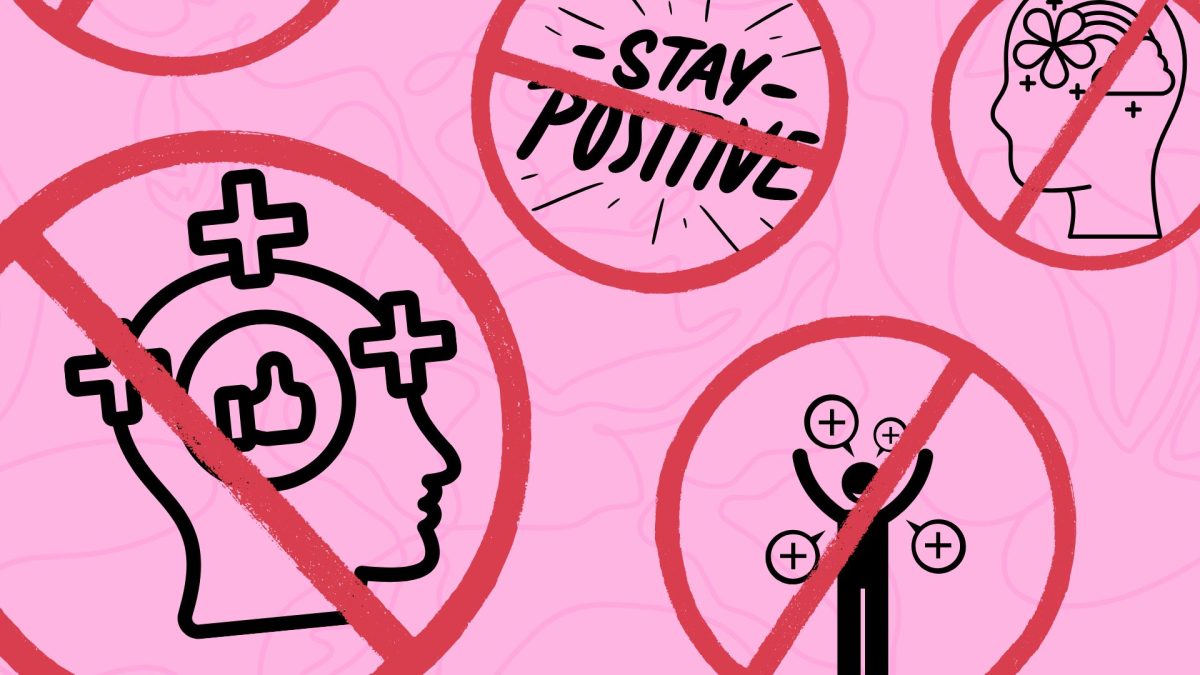Toxic positivity is the belief that individuals should remain a positive mindset at all times, even in extremely difficult or traumatic instances. This implies that there is no room for negative emotions such as sadness, anger, fear and especially grief.
While it may seem that toxic positivity can be a helpful coping mechanism, it actually crosses the line by invading real and necessary emotional responses. It prevents people from expressing their struggles and leads to individuals feeling guilty/ashamed for experiencing natural human responses. It results in emotional isolation, suppression, plus a lack of support.
Remaining positive in situations when you’re not, leads to people not having the ability to experience and process their genuine emotions. Over time, this emotional suppression builds up leading to many harmful results such as depression, anxiety or even physical health issues..This false positivity acts as a temporary fix rather than a real solution, creating deeper issues. The pressure to remain happy will prevent individuals from fully processing their experiences and developing from them.
An example of this can be someone who may be grieving the loss of someone they know. Toxic positivity would be telling them to “get over it,” or stating, “ everything happens for a reason” which can invalidate and minimize someones emotions. It is simply dismissing another person’s negative emotions by replacing it with a false positive emotion instead. In addition, it can also not be another person, but rather you, pressuring yourself to be happy all the time.
All of these phrases lead to extremely negative factors that are detrimental to a persons mental health, leading to shame, guilt and unrealistic expectations that people are setting for you.
In replace of this, optimism is the preferred and healthier route. Unlike toxic positivity, which usually dismisses valid emotions/pressures to maintain a constant happiness, optimism focuses on a more balanced approach. It still acknowledges difficulties and emotional struggles that individuals face, but responds to this with hope and resilience to accept the experiences and supports the belief that better outcomes are possible. It uses positive thinking to encourage emotional growth by creating a mindset for people to process negative emotions effectively to benefit their well-being.
On the other hand, toxic positivity completely ignores any negative emotions and relies on setting unrealistic emotional standards instead. While it may seem helpful, it actually disrupts emotional healing and relationships. In general, optimism is a better choice since it can help to support individuals' honest emotions while still providing hope and strength.








